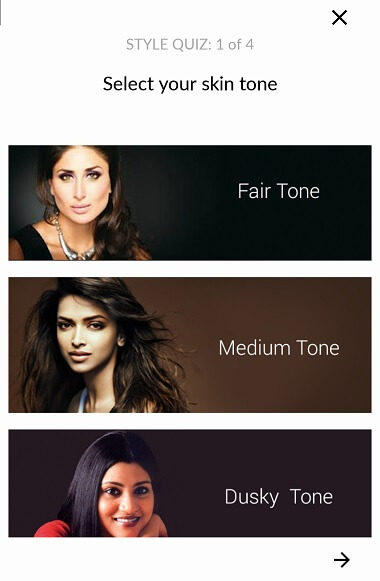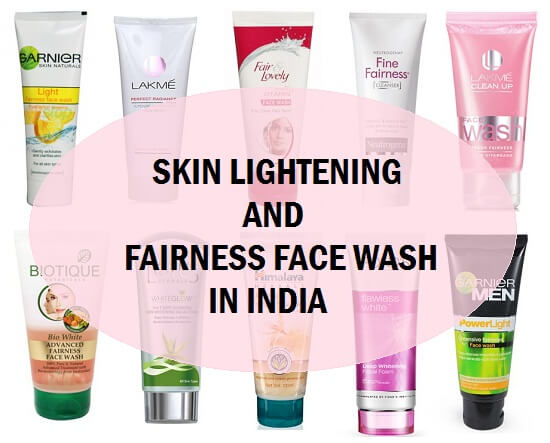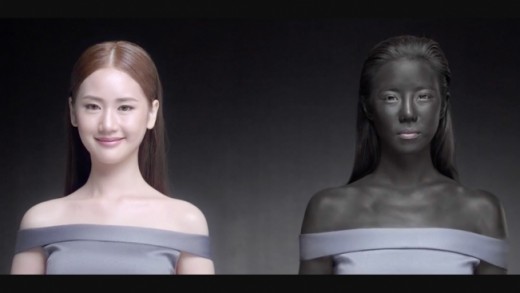“It’s the quality of your skin that matters, not the color.”
I was actually pretty shocked to see this slogan for a lesser known brand of skincare products at Health and Glow last week (India’s cosmetics and beauty supply chain). This advertising is starkly different to the messaging of nearly all other skin products I see being sold in Chennai, which all promote their skin lightening powers as their number one strength. Practically no cosmetic here is promoted on the basis of improving the health of your skin, renewing its well-being or helping repair any sort of skin damage – all that matters is if it helps bring you closer to being milky white.
As most South Asian women are accustomed to being taught, either by their own family or by the megaphones of the media, I too learnt that ‘fairness is loveliness’. It was never something I took special care to maintain/achieve, though, I will admit that approximately a fifth of my luggage when I shifted to Chennai a few months ago was sunscreen. This was not because I was extremely worried about getting easily tanned here in the Indian summer, but because I knew that, being born and raised in Canada, my skin would need the extra help to cope with stronger UV levels. For the sake of my skin health, I stocked up on Neutrogena Visage. And it’s a good thing I did – because, believe it or not, I find sunscreen choices to be shockingly limited and expensive here.
to cope with stronger UV levels. For the sake of my skin health, I stocked up on Neutrogena Visage. And it’s a good thing I did – because, believe it or not, I find sunscreen choices to be shockingly limited and expensive here.
From my observations and inquiries amongst (male and female) friends, the process of applying sunscreen before you leave the house is not such a common habit here. In the land of the burning sun, you will instead see girls riding their scooters with their faces completely enveloped in their dupattas (scarves), underneath their helmets, and sometimes even sporting elbow length gloves, even when it’s over 40 degrees Celsius. But all of these minor precautions are just for those particularly concerned with maintaining their skin tone, whereas many people just opt to ‘remove their tans’ later.
Every time I visit the local beauty salon and request something the staff will politely ask “okay ma’am, and do you want the anti-tan version?” Almost every service has a bleaching option. I was thoroughly confused the first time I went for a basic manicure in Chennai and was asked if I’d like to have my fingers lightened, to “go better with the polish color” I had chosen. So I suppose it makes sense that applying sunblock doesn’t need to be a common habit when, at practically every corner, you can find a spot offering all sorts of powerful and cost-effective organic and non-natural skin whitening processes. There is no shortage of these services because, as countless advertisements, television shows, shop boarding and billboards around this city indirectly and frankly tell both women and men: fairness is a requirement for success. And, while here in Chennai, I technically work in one of the largest industries that support this mentality, I do not personally agree.

As most of you reading this would know, commercial Tamil cinema very rarely chooses lead actresses who accurately represent the majority of females you see in the Tamil community. If actresses are chosen based on their proven acting talent, and then also happen to be fair-skinned, then I personally cannot argue with those casting decisions. But, at the moment, Kollywood (which I use to refer to the mass, masala film offerings that release weekly) is in a state of an almost 50/50 split of actresses cast for their dramatic abilities regardless of their skin tone, and those with little of that form of talent but also little melanin. As my friend and actress Pooja Devariya has so aptly put it: “Skin color seems to have been a representation of a certain section of our society in early cinema which has now become a mere representation of vanity…There is an obsession with fair skinned actresses. I’ve been asked if I would lose my tan before a project starts and I have gone all out to do it. [And then if we need to bring it back] use Derma Color D16, to get that ‘homely’ look”.
That obsession Pooja talks about, with skin colour, is so deeply ingrained that we don’t always recognize the discrepancies in our own critiques. I still recall the outcry over the release of Coldplay’s official “Hymn for the Weekend” video just two weeks after I arrived in Chennai. I read post after post via Twitter and Instagram from South Asians upset about Beyoncé’s “cultural appropriation”, for donning Indian clothing and accessories in the video that’s filmed around India. I personally felt much more supportive of the brilliant replies to those posts, that pointed out that one of the Indian film industry’s highest paid actresses at the moment is Amy Jackson – a 100% non-Indian model from Britain, who is given temporary tans to portray a South Indian damsel while filming Tamil movies.
One of several campaigns countering the dominant dialogue about fairness is the important work of ‘dark is beautiful’, founded in 2009 by the “Women of Worth” organization. This wonderful endeavour challenges the belief that a person’s value is determined by the fairness of their skin. Unfortunately, here, in one of the largest metropolises in one of the largest countries in the world, I can attest to the fact that an average person is told, via advertising, media and business, the exact opposite at least 50 to 100 times a day.
While writing this piece, I predict that I may receive feedback from people asking that if I do not support the ‘fair is lovely’ mentality, why do I choose to work in an industry that largely propagates it. To that I’ll say this – I love Indian cinema for its story-telling and vibrancy, not necessarily its casting. Moreover, I’m fortunate to work with filmmakers who cast artists based on their mettle first, and their physical abilities to fit a character, second. Working alongside these creative souls, I hope that we continue to increase the amount of cinema you see that indirectly supports movements like the ‘dark is beautiful’ campaign, and more accurately displays the authentic diversity of people I see every day here in Chennai. I know such filmmakers are a rarity in the commercial Indian cinema industry, which is why I’m glad to say I associate with such exceptional people who believe “it’s the quality of a performer’s acting that matters, not their color.”
Feature image source: Daily Motion; face wash image source: Tips and Beauty.

 Dilani Rabindran
Dilani Rabindran









